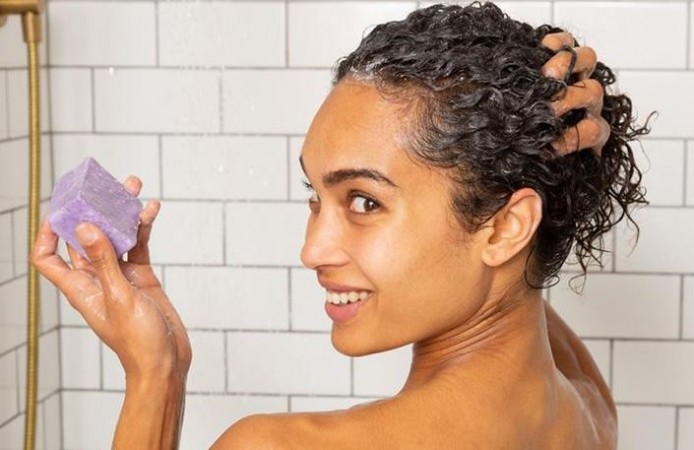
The quest for healthy, lustrous hair has led people to experiment with (How to wash hair) various cleansing agents, and one common question that arises is whether it's safe to wash hair with soap. While soap has been a staple for cleaning the body for centuries, using it on hair raises concerns due to its alkaline nature and potential for causing dryness and damage. In this article, we will delve into the science behind hair cleansing, discuss the pros and cons of using soap on hair, and explore alternative options for maintaining (How to wash hair) hair health.
Understanding Hair Structure
Before we dive into the soap debate, it's crucial to understand the structure of hair. Hair consists of three layers: the cuticle, cortex, and medulla. The cuticle acts as a protective barrier, and its health is essential for maintaining hair strength and shine. The natural oils produced by the scalp help nourish and protect the hair.
Soap and Hair: The Chemistry
Soap is traditionally made through a process called saponification, where fats or oils react with an alkaline substance (such as lye) to form soap molecules. These molecules have hydrophilic (water-attracting) and hydrophobic (water-repelling) ends, enabling them to lift away dirt and oil when combined with water.
However, the alkaline nature of soap can disrupt the natural pH balance of the scalp, potentially leading to several issues, including:
Dryness and Frizz: The removal of natural oils can result in dry and frizzy hair.
Cuticle Damage: Alkaline substances can cause the hair cuticle to lift, leading to damage and breakage.
Scalp Irritation: Soap's alkalinity may irritate the sensitive scalp, causing itchiness and discomfort.
Alternatives to Soap for Hair Cleansing
Shampoo: Commercial shampoos are formulated to maintain the scalp's pH balance and contain ingredients tailored for specific hair types. Look for sulfate-free and mild formulations to minimize potential damage.
Co-Washing: Co-washing involves using conditioner to cleanse the hair without stripping away natural oils. This method can be gentler on the hair and is suitable for individuals with dry or curly hair.
Natural Cleansers: Herbal and natural cleansers like shikakai, soap nuts, or aloe vera can provide a milder cleansing option. These substances have been used for generations and are considered gentle on the hair.
DIY Cleansers: Some homemade options include diluted apple cider vinegar or baking soda mixed with water. However, these methods should be used sparingly, as overuse may lead to imbalances in pH and moisture.
While washing hair with soap (How to wash hair) may seem like a cost-effective and convenient option, its alkaline nature and potential to disrupt the scalp's pH balance raise concerns about its safety for regular use. To maintain healthy and vibrant hair, it's advisable to explore alternative cleansing methods that are specifically formulated to protect the hair's natural structure and balance. Whether through commercial shampoos, co-washing, or natural cleansers, making informed choices about hair care can contribute to long-term hair health and radiance.
10 Beneficial Medicines for Stronger, Healthier Hair
Unveiling the Science Behind Scalp Massages and Hair Growth
Crafting a Healthy Path: Making White Chana Salad to Lose Weight